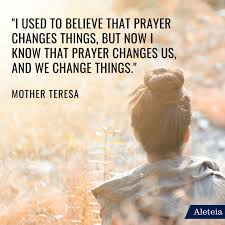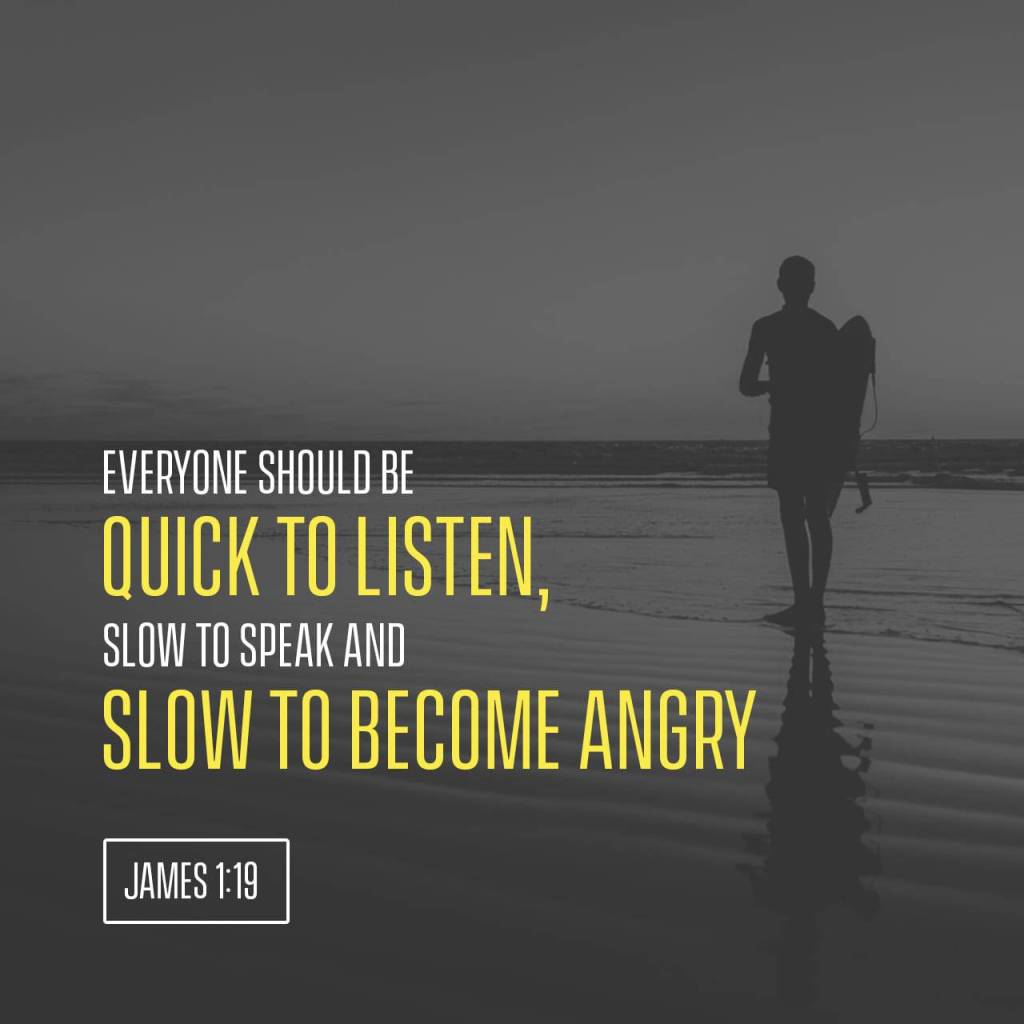You are currently browsing the tag archive for the ‘Prayer’ tag.
The roots of anger are many. Frustration and a feeling of powerlessness. Threats to self-esteem or identity. Unmet needs. Stress and feeling overwhelmed. Past trauma and unresolved issues. Sometimes it is a result of biological factors or is a learned behavior from childhood. Whatever its cause, it does harm to physical health and important relationships. For that, we lament.
Lament for the Angry
O Lord, hear my cry,
for the world is ablaze with anger.
From the streets filled with shouts of rage,
to homes where bitterness takes root,
anger spreads like a wildfire,
consuming hearts and minds.
Why, O Lord, is fury our companion?
Why do tempers flare and words wound?
Injustice and pain ignite the soul,
filling us with wrath and resentment.
We lash out, hurt others,
and in turn, hurt ourselves.
Merciful Father, we are trapped in this cycle,
our spirits darkened by unforgiveness.
We seek peace but are driven by conflict,
we yearn for love but are caught in hate.
Our anger isolates us,
estranges us from Your grace.
Jesus, You walked among us,
bringing peace to the troubled,
healing the wounds of the broken-hearted.
In Your presence, storms were calmed,
demons were cast out,
and forgiveness flowed like a river.
Teach us, O Gentle Shepherd,
to find solace in Your embrace.
Turn our hearts from anger to compassion,
from rage to understanding.
Help us to forgive those who wrong us,
as You forgave from the cross.
Fill us with Your Spirit,
that we may bear the fruits of peace.
Grant us patience in adversity,
kindness in response to cruelty,
and love that overcomes all hatred.
May Your light dispel the shadows within,
guiding us to walk in Your ways.
Transform our anger into a force for good,
a drive to pursue justice with mercy,
to seek reconciliation over revenge.
O Lord, we surrender our anger to You,
knowing You alone can heal our hearts.
May Your peace, which surpasses all understanding,
guard our hearts and minds in Christ Jesus.
Amen.
Today is Valentines Day and Ash Wednesday, the first day of Lent. There are a lot of lonely people out there, many with broken hearts, that will not be celebrating love, true love, but are despairing of ever enjoying a deep, intimate relationship, with anyone. For them I offer this lamentation and a prayer that through Lent, they will find the joy, peace and contentment that only our crucified and risen Lord can bring.
Lamentation for the Brokenhearted and Lonely
Oh, how the broken-hearted weep, In the shadows where loneliness creeps, Their souls heavy with sorrow’s weight, In the darkness where love meets fate.
Alone they wander, hearts laid bare, In search of solace, in search of care, Their tears like rivers, flowing deep, Midnight whispers secrets that they keep.
The ache within, a silent cry, As memories haunt beneath the sky, Each shattered dream, each shattered vow, Echoes of pain that linger now.
In solitude, they find their song, In the quiet, where they belong, But oh, the ache, the silent plea, For healing balm to set them free.
Prayer for Ash Wednesday and Lent:
Almighty Father, on this solemn day, We come before You, hearts in disarray, In the ashes of our brokenness, we kneel, Seeking Your grace, Your love to feel.
As Lenten journey begins anew, Grant us strength, courage true, To walk the path of sacrifice and grace, In Your embrace, find our rightful place.
Meditating, may we find sustenance for the soul, In prayer, may Your presence make us whole, In helping others, may we learn to share, The burdens of those in deep despair.
Bless us with Your mercy, Lord, we pray, Guide us through this Lenten day, Renew our spirits, heal our pain, In Your love, may we find gain.
******************************************************
God will never leave us or forsake us and nothing can separate us from his love. Romans 8:38,39
It’s no news that Ukraine and Russia are at war, and Israel and Hamas are at war. It may be news to some that in Ukraine over 9.6 thousand civilians and over 61,000 soldiers have died since the start of the war (OHCHR). 300,000 Russian soldiers have been killed or seriously wounded. Over 28,000 people have died in the Israel – Hamas war. Besides death, countless people have been maimed for life and thousands of refugees have fled their homes, many of which have been destroyed. So much pain and loss in these two wars alone. Throughout history war has raged and ravaged lives, broken up families causing misery and suffering. Below is a lament for war and a prayer from the Book of Common Prayer.
O Lord, God of our salvation, as we cry out before you today about the injustice, pain and sorrow in our world. We think of those impacted by war and terror. We know that each person and every child is precious to you, yet we see fear, suffering seemingly without end. You Lord are the great provider, you see the needs of those impacted by war and you love them and weep with them. Comfort them Lord as they struggle and nourish their souls with renewed hope each morning. Guide those who seek refuge to places where they can find help and rest, and move the hearts of nations to welcome them. Help your people Lord to find community and sustaining joy in places of refuge or exile. Lord you promise a time where there will be no more war, no fear, or pain, or sorrow, or suffering. Build your kingdom here, come Lord Jesus.
We pray for peace in our world: that all people may live free from violence, in safety and security, and with hope for the future. We pray for all people who are working to build peace in their communities: that they may inspire others by their example and be strengthened to carry on, even in the hardest times. We pray for families impacted by war; for those living in fear, for those indelibly touched by tragedy, for those who mourn; We pray for boys and girls whose childhood has been stolen in the cause of war, bring restoration, healing, family, love. We pray for those fleeing war and persecution, those seeking refuge and those seeking a fresh start in a land not their own.
Blessed are the peacemakers, for they will be called children of God. Matthew 5:9
Oh Lord, my soul cries out for the injustice that scars our world, A mournful song echoing the cries of those whose stories often go untold. In the corners of society where oppression takes its hold, We lift our voices in anguish, longing for a justice manifold.
Lord, in the face of systemic wrongs and blatant disregard, We grieve for those whose lives are marred. The oppressed, the marginalized, their voices suppressed, In the labyrinth of injustice, may Your light manifest.
As tears fall like rain for those denied their rights, For the ones overlooked, trapped in societal fights. In the courtrooms of indifference, where fairness is denied, Grant us the courage to stand, to speak, to abide.
In this lament, we confront the harsh reality, Of a world where prejudice distorts morality. Racial divides, economic disparities stark, In the lament’s cadence, we embark.
Proverbs 31:8-9 (NIV)
“Speak up for those who cannot speak for themselves, for the rights of all who are destitute. Speak up and judge fairly; defend the rights of the poor and needy.”
May our actions reflect Your call to defend, The rights of the oppressed until injustice meets its end. In this lament, may we find the strength to pursue, A world transformed by Your justice, bright and true.
Second Chronicles 14 begins by reporting that Abijah, king of Judah, had died and that his son, Asa, succeeded him, and that the country was at peace for ten years. That was primarily because “Asa did what was good and right in the eyes of the LORD his God.”
Verse eight tells us that he had an army of 580,000 men, from the tribes of Judah and Benjamin, and that they were well equipped with various types of arms.
That is a nice place to be in life. Living at peace with everyone and secure. Confident. Well off. No worries. If only it could last.
We are informed in 2 Chronicles 14:9 that Zerah the Cushite marched out against them with an army of thousands upon thousands and three hundred chariots as well. The kingdom of Judah was clearly out numbered and in a tight spot.
What was King Asa’s strategy? PRAY! He called out to the LORD his God and said,”LORD, there is no one like you to help the powerless against the mighty. Help us, LORD our God, for we rely on you, and in your name we have come against this vast army. LORD, you are our God; do not let mere mortals prevail against you.”
Life in the kingdom wasn’t so peaceful anymore. King Asa and his subjects were in trouble. King Asa falls to his knees in prayer. Well, like the words in the song Higher, by Unspoken say, “That’s a pretty good place to be.” It can lead to treasure. It can lead to plunder.
Verse 12 – Good News! “The LORD struck down the Cushites before Asa and Judah. The Cushites fled, and Asa and his army pursued them as far as Gerar. Such a great number of Cushites fell that they could not recover; they were crushed before the LORD and his forces. The men of Judah carried off a large amount of plunder.”
So there you have it. King Asa and the kingdom of Judah were living in peace, not bothering anyone, just minding their own business. And then the bully Zerah the Cushite decides his own kingdom isn’t enough anymore. He wants King Asa’s kingdom, which isn’t really King Asa’s kingdom, but God Almighty’s kingdom. This time Zerah the Cushite picked on the wrong King and kingdom. Asa prayed and put his trust in the One, True God. God honored his prayer and his trust and not only was the Cushite army destroyed, but Judah ended up with a lot of plunder. That’s a pretty good place to be!
Now I’m not saying that (problems + prayer = plunder) all the time; or that (trials + trust = treasure) in every situation, but it does happen more frequently than you might imagine. Remember the story of Gideon and his 300 men going up against 120,000 Midianites? The Midianites were routed and plundered, with God doing most of the heavy lifting, if you know what I mean. (Judges 7-8) Or how about King Hezekiah and Jerusalem under siege by more than 200,000 soldiers under Sennacherib. Hezekiah prays that God would deliver his people, and “that night the angel of the LORD went out and put to death 185,000 in the Assyrian camp. Sennacherib retreated in haste and his camp was plundered.
It pays to pray and trust God!
I wish I could say that our friend King Asa lived happily ever after, but that is not the case. He stopped praying and trusting God. Toward the end of his life he started trusting in men, and not in God. Hanani, a prophet/seer, confronted Asa, and reminded him of the good ole days when he trusted God. He told Asa that the “eyes of the LORD range throughout the earth to strengthen those who hearts are fully committed to him.” But now that Asa’s heart was committing to foreign nations and looking to them for help; he was under the judgment of the LORD. Asa was angry with Hanani and put him in prison. He also began to brutally oppress some of his people. Asa was afflicted with a disease in his feet, but still did not seek help from the LORD. He died two years later. (2 Chronicles 16)
We suffer needlessly when we reject God and rely solely on humans.
Trust in the LORD with all your heart and lean not on your own understanding; in all your ways submit to him, and he will make your paths straight. Proverbs 3:5,6


O LORD God, Who lives in eternity,
The heavens declare thy glory,
The earth thy riches,
The universe is thy temple:
Thy presence fills immensity,
Yet thou hast of thy pleasure created life,
and communicated happiness:
Thou hast made me what I am,
and given me what I have:
In thee I live and move and have my being.
(A Puritan’s prayer from the book The Valley of Vision)
In June, a group came from Chicago to help out at the home for needy children where my wife and I  serve. The leader of the group is Jim Hardman. He has brought a group down every year for the last ten years or so, and we have become friends over that time. Him and his group always bring gifts for the missionaries at the mission. He told me about this little Puritan Prayer book that he had discovered, and that encouraged him in his personal devotion time. He said he brought a copy in Spanish for our pastor. It sounded like a book that I would quite enjoy and was somewhat disappointed that he did not have a copy for me.
serve. The leader of the group is Jim Hardman. He has brought a group down every year for the last ten years or so, and we have become friends over that time. Him and his group always bring gifts for the missionaries at the mission. He told me about this little Puritan Prayer book that he had discovered, and that encouraged him in his personal devotion time. He said he brought a copy in Spanish for our pastor. It sounded like a book that I would quite enjoy and was somewhat disappointed that he did not have a copy for me.
Two weeks later my family and I were in Colorado, visiting my parents and my sister and her family. I like reading about the Civil War and my sister had a few Civil War books for me. She gave me another little book that she said her and her husband have been enjoying as well. She had a brand new copy of The Valley of Vision for me. The very same book that Jim Hardman had been talking about. I started reading it and I love it. I love the old language, but more than that I love the perspective of the Puritan writers. Every prayer focuses not only on the goodness of God, but on the wretched, vile, state of humans, which makes the goodness of God to humans seem all the sweeter.
I like these prayers so much that I want to include excerpts of them in this blog about enjoying God. Below is one entitled God Enjoyed.
Known, but beyond knowledge, revealed, but undervalued, my wants and welfare draw me to thee, for thou hast never said, “Seek he me in vain.”
To thee I come in my difficulties, necessities, distresses; possess me with thyself, with a spirit of grace and supplication, with a prayerful attitude of mind, with access into warmth and fellowship, so that in the ordinary concerns of life my thoughts and desires may rise up to thee.
Continue the gentleness of thy goodness towards me, and whether I wake or sleep, let thy presence go with me, thy blessing attend me.
Thy vows are ever upon me, and I praise thee, O God.
_____________________________________________________________________
Puritanism was a religious reform movement that arose within the Church of England in the late sixteenth century. Under siege from church and crown, it sent an offshoot in the third and fourth decades of the seventeenth century to the northern English colonies in the New World–a migration that laid the foundation for the religious, intellectual, and social order of New England. Puritanism, however, was not only a historically specific phenomenon coincident with the founding of New England; it was also a way of being in the world–a style of response to lived experience–that has reverberated through American life ever since.
The other day in the monthly staff meeting that we have at the home for needy children, the  administrator, Jill, said she wanted us to spend the first 15 minutes in prayer. She invited those so inclined, to say a prayer out loud. She said the prayers should be short. One or two sentences. She said that because on occasion she would get frustrated with her two young children. She told us that she would be at a store and her kids would ask her for something. Sometimes she would tell tell them that yes, she would buy them a toy, but that they would need to wait. During their time at the store, the kids would continue to ask for the toy. She had already told them that she would buy it but they kept asking for it. It bothered her that they didn’t seem to believe her or trust her word. Then she realized that she does the same thing with God in her prayers. She doesn’t just ask once God for something once and then leave it in his good and loving hands, but keeps pestering God about it. for example, she cares for two children. One boy she adopted was born with hepatitis C. She kept praying for him to be healed, like God didn’t hear her the first time. She has cared for a six year old girl for almost that long. She has tried to adopt the girl for almost that long, but has had no success dealing with the Mexican bureaucracy in the adoption process, despite her many prayers.
administrator, Jill, said she wanted us to spend the first 15 minutes in prayer. She invited those so inclined, to say a prayer out loud. She said the prayers should be short. One or two sentences. She said that because on occasion she would get frustrated with her two young children. She told us that she would be at a store and her kids would ask her for something. Sometimes she would tell tell them that yes, she would buy them a toy, but that they would need to wait. During their time at the store, the kids would continue to ask for the toy. She had already told them that she would buy it but they kept asking for it. It bothered her that they didn’t seem to believe her or trust her word. Then she realized that she does the same thing with God in her prayers. She doesn’t just ask once God for something once and then leave it in his good and loving hands, but keeps pestering God about it. for example, she cares for two children. One boy she adopted was born with hepatitis C. She kept praying for him to be healed, like God didn’t hear her the first time. She has cared for a six year old girl for almost that long. She has tried to adopt the girl for almost that long, but has had no success dealing with the Mexican bureaucracy in the adoption process, despite her many prayers.
At the staff meeting most of us prayed a simple, short prayer, and I thought that it was one of the best corporate prayer times that we have had.
Later, I told her that I liked what she had said, and agreed with her, especially since I regularly had the same shopping experience with my two young daughters. I told her that I thought Jesus agreed as well. Jesus talked about how to pray appropriately with his disciples in Matthew 6 and also in Luke. In Matthew he told his followers that some people babble long prayers and think that they will be heard because of their many words. Then he told them the Lord’s Prayer. It is easily prayed in 30 seconds, and covers any kind of a petition or concern that could possibly be on a person’s heart.
So why do so many people pray such long prayers, especially in public? At the mission we naturally pray before each meal. The other day someone prayed for about two minutes. Really, how long does it take to say “Thank you God for this food and bless it for our bodies use”?
Then there is the other side of the coin, or the tortilla, as my wife likes to say. A few days after Jill spoke, Modesto, one of our missionaries from the mountains of Oaxaca, spoke about perseverance in prayer, and I thought of Jesus teaching on persevering in prayer (Luke 18:1-8)) I also thought about Jesus prayer request at Gethsemane. He asked God to let the cup that he was going to endure, to pass from him, adding the words, “Yet not my will, but yours be done.” That seems like a short enough prayer, but when he found his disciples sleeping, he asked them why they could not pray with him for one hour? So what seems like a short prayer request was actually a long prayer.
So what does God really want? Long Prayers or short prayers? Part of the answer can be found in Ecclesiastes chapter three where the writer says there is a time for everything. There is a time for short prayers and long prayers. Also, we need to define prayer. Prayer is communicating with God. Paul tells believers in his letter to the Thessalonians to pray without ceasing. In this sense our lives are to be lives of prayer, always communicating with God. We also need to consider different aspects of prayer. Many Christians use the acronym ACTS to help them with their prayers. A is for Adoration. C is for Confession. T is for Thanksgiving. S is for Supplication or petition; asking God for things.
When we are communicating with God; adoring and thanking him, our prayers can never be long enough. We could, and probably will, spend an eternity worshiping and praising and thanking God. I have been reading Revelation lately, and over and over there are passages depicting the angels and elders and departed saints singing praises to God eternally; thanking God forever and ever. Our primary communication with the Almighty should be adoration and thanksgiving. By our attitudes, actions and words we communicate with God and with others our gratitude and love for our Creator and Savior.
Confession of our sins, faults, errors and shortcomings are a vital aspect of prayer as well. How long this part of communication lasts with God depends on the person who is praying. We would hope this aspect of prayer would not consume a terrible amount of time, although I am reminded of Martin Luther, who, when living in a monastery, would spend an hour or two each day confessing his sins. He recognized himself as a sinful man when comparing himself to a holy God, and how far short he fell from God’s righteous demands upon his life. As I grow older and closer to God, my own sinful acts, thoughts and behavior become more apparent to me, and, I must confess, that confession takes up a greater part of my prayer life.
Some people, however, spend an inordinate amount of time praying about their sins. God doesn’t want us to focus on on our sins, but on the Savior who saves us from lives from sin. He wants us to focus on his overwhelming compassion and mercy. He wants us to continually remember that he forgives our sins and cleanses us from all unrighteousness. This brings us back to Adoration and Thankfulness.
The final letter is S which stands for Supplication, or to use a more common word, petition. Or, to put it more simply, asking God for something. Some people seem to think that we can twist God’s arm into giving us what we want, by asking him over and over for the same thing, like one of my daughters does when we pass the toy department in Wal-Mart. Others think fasting is the trick to getting our own way with God. Some like to gang up on the Almighty with prayer chains to receive a positive response. None of these tactics work to manipulate God into giving us what we want. No matter how determined or sincere the person or people praying the prayers are; no matter what the grievous situation may be or how many people may be blessed by an answer in the affirmative. God is sovereign, all powerful and all wise. He has determined what will happen before the foundation of the earth.
Because of this knowledge I stopped praying petitionary prayers for many years. Why ask God for things and to help people when he has already determined what is going to happen, I reasoned. And then I took a close look at the Lord’s Prayer, which Jesus taught his disciples to pray, and realized the whole thing is a series of petitions. I wondered why God wanted us to make all these requests of him, when he had already decided whether to grant them or not. It finally struck me that asking God for stuff was not so that I might change his mind or convince him of the rightness of my request. He wants me to ask him for stuff to change me and convince me that I am an extremely needy and dependent human being. When I ask God for daily bread, forgiveness and deliverance from the Evil One, I am forced to recognize my weakness and inability to ultimately provide any good thing for myself. By praying petitionary prayers, my eyes are opened to God’s goodness and the fact that he loves me and wants me to be happy. Every bite of food I swallow and drink of water that goes down my throat is a generous gift from my loving heavenly Father. Every time I receive pardon for sins and am protected from the Evil One, I know it has happened because of God’s incredible mercy and grace.
Also, when we pray for people in need, many times God is asking us to be part of the answer. When we pray for a sick person, perhaps God is telling us to bring that person or the family a meal or clean their house. Maybe when we pray for people in prison God is telling us to teach them English and bring them some cookies, a smile and a hug. It could just be that when we pray for impoverished people in Mexico, that God is telling us to start a home for needy children, or maybe two or three! When we pray for the needs of people, our main focus in that prayer should be to ask God how we can cooperate with him in being part of the answer.
So I spend a minute praying the petitionary prayer the Savior taught us to pray, and an hour giving him adoration and thanksgiving for the hundreds of ways he lovingly answers those petitions.
So the answer to the question, “Long Prayers or short?” The answer is Yes! Long on praise and thanksgiving, short on petition.
***** ***** ***** *****
What do you do in secret? What do you do when nobody is looking? In your private time when you are alone? Jesus told his followers that our heavenly Father sees what is done in secret and that he will make it known (“For there is nothing hidden that will not be disclosed, and nothing concealed that will not be known or brought out into the open.” Luke 8:17). How does this make you feel? It makes me want to celebrate!
I have been reading Matthew 6 for the last week. Jesus is teaching his disciples and the crowd in his famous Sermon on the Mount. He talks a lot about our “secret time” in chapter 6. He is talking about practicing righteousness. He tells the people, “Don’t practice righteousness to be seen by people. Do your acts of righteousness secretly.” What are the acts of righteousness that he is referring to? Giving to the needy, prayer and fasting.
Giving to the needy
There are many ways that we can give to the needy. We can give money. We can give of our time. We can give our talents or skills. Jesus said that when we give of our time, talents and treasure to help those in need, that our right hand should not know what our left hand is doing. What did Jesus mean by this? How can our right hand not know what our left hand is doing? That’s easy. It happens all the time. When we sit down to eat a meal we don’t consciously tell our right hand to pick up the fork and stab a piece of broccoli and put it in our mouth. It happens naturally without much, if any, thought. And after eating the broccoli, we don’t proclaim to those around us what a good deed we have just done (unless we are little children who hate broccoli and want our parents to be proud of us for performing such a disagreeable task). It should be just as natural for disciples of Christ to give money to the down and out, or to volunteer at a homeless shelter, or to change the oil in the car of a struggling single mother. It’s nothing to boast or brag about, unless we have such a childish faith, that we crave the attention of people more than the reward of our heavenly Father. Jesus tells us the Father, the Unseen See-er, sees what we give, and will reward us. Those who boast about what they have given and receive praise from people have gotten their reward.
Prayer
“And when you pray, do not be like the hypocrites, for they love to pray … to be seen by others. Truly I tell you, they have received their reward.” Jesus was talking to the crowd about how to pray and how not to pray. Here he is telling people that when you pray to your Father, pray to HIM! Talk to HIM! Don’t pray to your ego. Don’t pray to impress people. Don’t pray to preach at people. Pray to communicate to God.
How is this best accomplished? Jesus continues, “But when you pray, go into your room, close the door and pray to your Father, who is unseen. Then your Father, who sees what is done in secret, will reward you.” If we want to be rewarded by our Father who is in heaven, by answered prayers, intimacy with God, contentment, fulfillment, joy and peace, then we need to do our praying in secret; in silence and solitude.
Jesus says you don’t need to make long prayers, to inform God of your needs; to go into great detail about your aches and pains; your work situation; family matters; emotional turmoil; spiritual disappointments; struggles with sin and the like. Jesus says in his introduction to the Lord’s Prayer, that God already knows our needs. He is not in the dark about your situation, just waiting for you to spill your guts so that he will understand what you are going through. When he gives us the Lord’s Prayer as a model prayer, he purposely kept it short. He knows our needs, and simply wants us to acknowledge our needs before him, and depend on him and trust him, believing that he is good and that his love endures forever. Having confidence in him that he loves us and wants us to be happy, and that he will do the right thing. We do all this, if we are obedient to Christ, in SECRET.
Fasting
I don’t fast a lot. It’s not my strongest spiritual practice. I’m somewhat relieved that Jesus didn’t tell us that we need to fast. He just told people, that if they choose to fast, that they shouldn’t make a big deal about it. It is easy to make a big deal about it in our culture. If you want to impress people with your spirituality, tell them that you going without food for a meal, or two or three, in order to get closer to God. That will get their attention. We love our food. We don’t just have three squares a day, but we usually graze in between meals with all manner of snacks. So giving up food for a while,for spiritual growth, is a big deal, worthy of a reward.
But where do you want your reward to come from? From the praises and adulation of people who are impressed with your spiritual practice? That can be good for your ego, but what about your soul? God gives you a choice, you can receive your reward for fasting from friends and family, by letting them know what you are doing, or you can receive a reward from the Unseen See-er, our heavenly Father, who wants to bless our socks off with rewards, if we keep fasting our little secret, a little secret between me and God – between you and God.
So, do you have a secret? Do you do things in secret that nobody knows about? Things that you prefer to keep under wraps? I hope so. I hope it’s Giving to the needy, Prayer, and Fasting. Sometimes the rewards for doing things in secret are material, physical, or spiritual during our life here on earth. Sometimes the rewards are out of this world! I think that when we get to heaven, God will say, “Well done, good and faithful servant.” And then God will reveal to us, and to the multitudes in heaven, what we did for Him on earth, in secret, and how that made a difference in peoples lives. What a reward that will be!
***** ***** ***** *****
The one who gives without regard to who is looking and does not even notice it as anything special themselves, no “big deal”, is the very one who has God’s attention and becomes God’s creative partner in well-doing. He or she will know the fellowship of God and see the effects of these deeds multiplied for good in the power of God. Dallas Willard, The Divine Conspiracy






